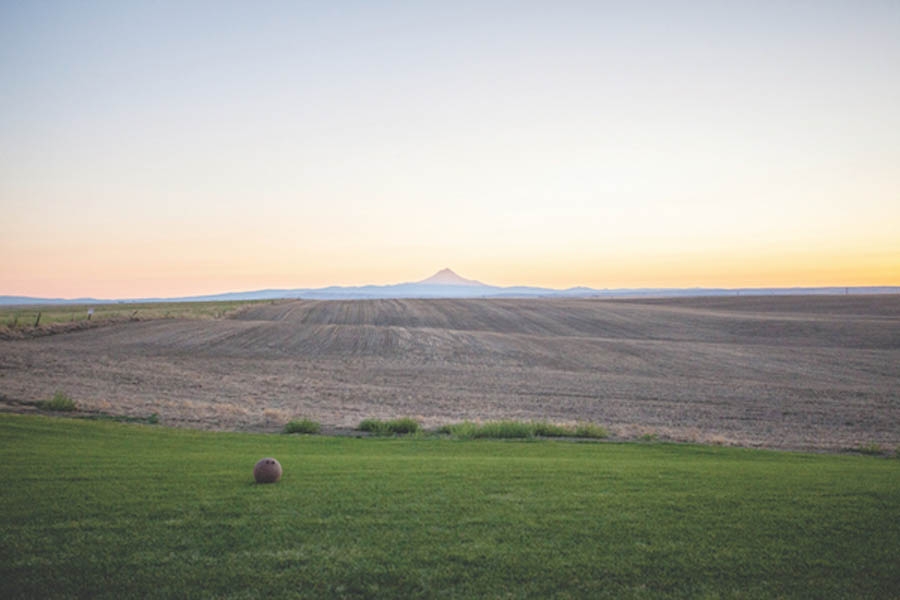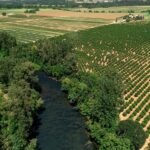High agricultural land values put small farmers under pressure.
Bryan Harper’s hazelnut farm has been in his family for 137 years. But as a young farmer operating in today’s rapidly evolving agricultural sector, his main challenge is keeping hold of the 1,200 acres of property in Junction City his family has owned for five generations.
Rising agricultural land values mean it is hard for owners of small farms, like Harper, to buy more land to grow the business. He also faces a high estate tax bill as he takes over ownership of the farm from his father. While his land has gone up in value, the farm doesn’t generate much revenue to cover fees, such as the estate tax. This year, the farm’s hazelnut yield dropped 40% because ice storms damaged the crop at the start of the year.
“We are rich in assets, but poor in money,” said Harper, who spoke during a panel discussion on challenges facing Oregon’s farmers and ranchers at the Oregon Business Plan summit in Portland a few weeks ago. “Land prices are a big deal. It doesn’t bode well for me if I want to expand,” he said.
Harper’s situation is not unusual for small Oregon farmers. Just like what is happening in the residential housing market, rapidly rising farmland prices are making it increasingly difficult for farmers to afford land. Nearly one-quarter of all Oregon farmers in 2012 were beginning farmers, down from 32% in 2002.
Compounding the problem is a large generational shift happening in the sector. A recent joint study by Oregon State and Portland State universities found the average age of an Oregon farmer is 60, up from 55 in 2002. As older farmers retire, 64% of Oregon’s farmland will change ownership in the next two decades.
Farming advocates are worried the rising agricultural land values are likely to lead to more Oregon farmers selling their property to bigger farms and non-agricultural corporations. This will in turn will lead to continued consolidation and loss of farmland to real estate development.
SEE RELATED STORY: MILKING PROFITS
Portland State University’s Nohad A. Toulan School of Urban Studies & Planning will release a report on the rising costs of the state’s agricultural land in January. Megan Horst, assistant professor at the school, shared provisional data that shows the extent to which agricultural land prices are rising in the state.
The researchers analyzed nearly 10,000 sales records from 2010 to 2015, representing 1.16 million acres of agricultural land. The research shows the median price for an acre of farmland was $12,719 in 2015, a 40% increase from the median in 2011. Smaller farmers pay much more for small pieces of land compared with large purchases of 40 acres and more. The median price for small transactions of two to three acres was $80,000 per acre, said Horst.
Individuals represented the majority of buyers (71%), while 20% of buyers were corporations, including real estate investment trusts. The largest buyers in 2010-2016, by acreage and price, was BTAZ Nevada LLC, a livestock company; the second largest buyer was Pueblo Mountain Land Company LLC.
A number of efforts are underway to support small-scale farming in Oregon. In September, governor Kate Brown signed a bill to create the Oregon Agricultural Heritage Program, an initiative designed to help farmers pass on their land to future generations. The program provides tax benefits to farmers that agree to protect their land from non-farm development.
A bill is also in the works to drop the state’s estate tax. SB 870 would eliminate the fee, which applies to estates valued at or above $1 million. The bill’s sponsor, Senator Bill Hansell for District 29, Northeastern and North Central Oregon, argues the estate tax is a disincentive for small farms to grow.
“For estates comprised mainly of illiquid assets, like land, coming up with the cash to pay the tax can be a major challenge,” said Hansell.
As the affordability crisis takes hold in metropolitan areas, rural Oregonians will also not be immune.




